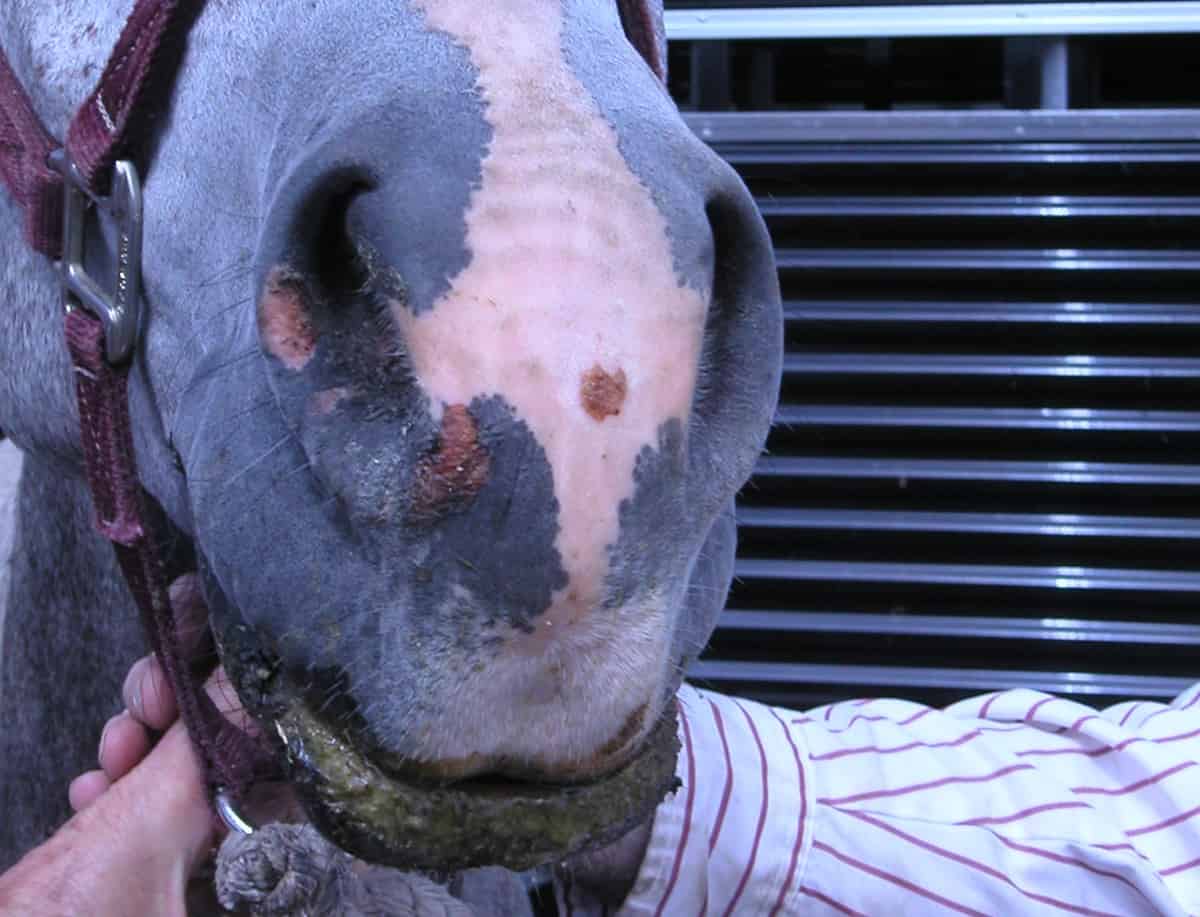Two Kansas Counties Confirmed as Newly Infected With VSV
Vesicular stomatitis has spread to Harvey and Johnson counties.
Share
ADVERTISEMENT

Vesicular stomatitis virus can cause blisters and sores in the mouth and on the tongue, muzzle, teats, or hooves of horses, cattle, swine, sheep, goats, llamas, and a number of other animals. | Photo: Photo: Courtesy Dr. Josie Traub-Dargatz
Additionally, newly infected premises were quarantined in the following counties:
- Labette (one new suspect equine premises);
- Montgomery (one new suspect equine premises); and
- Sedgwick (one new confirmed positive equine premises)
Since its last Situation Report on Aug. 6, 11 previously suspected or VSV-infected premises have been released from quarantine in Cowley, Labette, Miami, Neosho, and Riley counties.
Since the Kansas outbreak began on June 16, 26 counties have been identified with confirmed positive or suspect premises
Create a free account with TheHorse.com to view this content.
TheHorse.com is home to thousands of free articles about horse health care. In order to access some of our exclusive free content, you must be signed into TheHorse.com.
Start your free account today!
Already have an account?
and continue reading.
Share
Written by:
Edited Press Release
Related Articles
Stay on top of the most recent Horse Health news with















